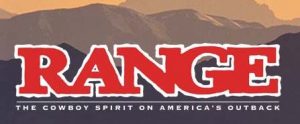What If Nature Were For Sale?
The New York Stock Exchange (NYSE) recently announced the launch of a new “asset class,” one whose members will be referred to as “Natural Asset Companies.” The project was developed by NYSE and Intrinsic Exchange Group, which is a partnership of the Inter-American Development Bank, the Rockefeller Foundation, and a venture capital firm called Aberdare Ventures. Uncharacteristically, NYSE itself is also a part owner.
Asset classes are simply a grouping of investments that have similar characteristics and are subject to the same rules. Generally, that includes classes like stocks, bonds, cash, real estate, and commodities. Financial advisors use asset classes as a tool to ensure that investors diversify their portfolios. That has been fairly routine thinking on Wall Street for decades. But this new class of Natural Asset Companies (NACs) is designed to include something completely new – “sustainable enterprises” that hold the rights to “ecosystem services” produced by natural lands. In other words, companies that own lands which naturally produce valuable assets, from timber and minerals to forage and water.

The launch of the NAC asset class attracted considerable attention in the financial press, and NYSE’s Michael Blaugrund explained the excitement. “Our hope is that owning a natural asset company is going to be a way that an increasingly broad range of investors have the ability to invest in something that’s intrinsically valuable, but, up to this point, was really excluded from the financial markets.”
The Intrinsic Exchange Group further explained that NACs will give owners the ability to convert “nature’s value” into capital, which will provide money “to power a sustainable future.” They estimate the value of the “global ecosystem services market” at $125 trillion annually, including areas like carbon sequestration (forests), biodiversity (wildlife), and clean water. We all know the importance of clean water, we want healthy wildlife and plant populations, and we understand the value of forests. But how exactly do you put a value on that, and how does Wall Street make money from it? Some of these investors are good people with altruistic hearts, but they are not in the habit of buying land merely to preserve it for future generations, nor even to ensure that economic assets are produced “sustainably.” They require a substantial return on investments, as any of us would.
In fact, the company describes its mission as “pioneering a new asset class based on natural assets and the mechanism to convert them to financial capital.” These assets include “biological systems that provide clean air, water, foods, medicines, a stable climate, human health and societal potential.” In other words, they plan to buy vast tracts of natural lands, and to be paid for what those lands produce – not only traditional products like minerals and food, but also public access, and intangible (unquantifiable) contributions to a “stable climate.”
Some skeptics are already concocting conspiracy theories. One headline screamed that with this new asset class, “Wall Street’s Takeover of Nature Advances.” An overreaction perhaps, but the investors must have some idea how to monetize what they think is $125 trillion of value. If one could buy the Rocky Mountains, for example, one might get rich selling access to, and products from them. But the Rockies are mostly public lands, not for sale. So investors look elsewhere.
Specifically, the company is working in Central America on its pilot project. Costa Rica’s Minister of Environment and Energy touts the project that “will deepen the economic analysis of giving nature its economic value, as well as to continue mobilizing financial flows to conservation.” That last part, about the money flowing to conservation, is only a claim for now. The company says NACs “will use the funds to help preserve a rain forest or undertake other conservation efforts, like changing a farm’s conventional agricultural production practices.” But as writer Whitney Webb points out, “even the creators of NACs admit that the ultimate goal is to extract… profits from the natural processes they seek to quantify and then monetize.”
In the West, nature is not for sale, and is not likely to be. All thoughts of selling public assets meet adamant opposition here. It is difficult to image the NYSE or the Rockefeller Foundation would find any more support than former Interior Secretary James Watt did, when he proposed selling some public lands 40 years ago.
Still, vast swaths of open lands are probably are for sale elsewhere, if the price is right, and investors range from the government of China to wealthy individuals like Ted Turner. These new Wall Street investors say their companies will “transform our economy to one that is more equitable, resilient and sustainable.” In fact, the American system of free enterprise has proven to be sustainable for centuries, and has always generated money for altruistic endeavors, including the Rockefeller Foundation itself. Where do these investors think their money came from? In this new scheme, they may or may not spend profits on the conservation projects they promise, as there are no guarantees once nature becomes a commodity, bought and sold on the open market.
If nature itself has owners, they can charge whatever they want for clean water, clean air, energy, and access for fishing, camping, hiking, photographing, or simply enjoying the outdoors.
Greg Walcher is a contributing writer to RANGE magazine. See more on his blog by clicking here
You may also like
-
Arizona rancher sues to stop million-acre national monument
-
VDH: How to Destroy the American Legal System
-
Colorado conservation group sues wildlife officials for skirting NEPA to get wolves into the state
-
Polis adds another radical activist to Colorado Parks & Wildlife Commission
-
Packing behemoth JBS aims to takeover world’s meat industry



And do it all with free money from uncle Sam.
Just use the supposed conservation easement tactic at the same time package the whole thing into a R and D tax package and there you go. 10 to 1 write-off the top of any and all tax bill. Uncle kicks you back $10 for every $1 invested.
Buy huge chunks of land… Don’t really matter the cost… Because uncle buys those for you. It’s called supposedly responsible billionaire ship. LoL